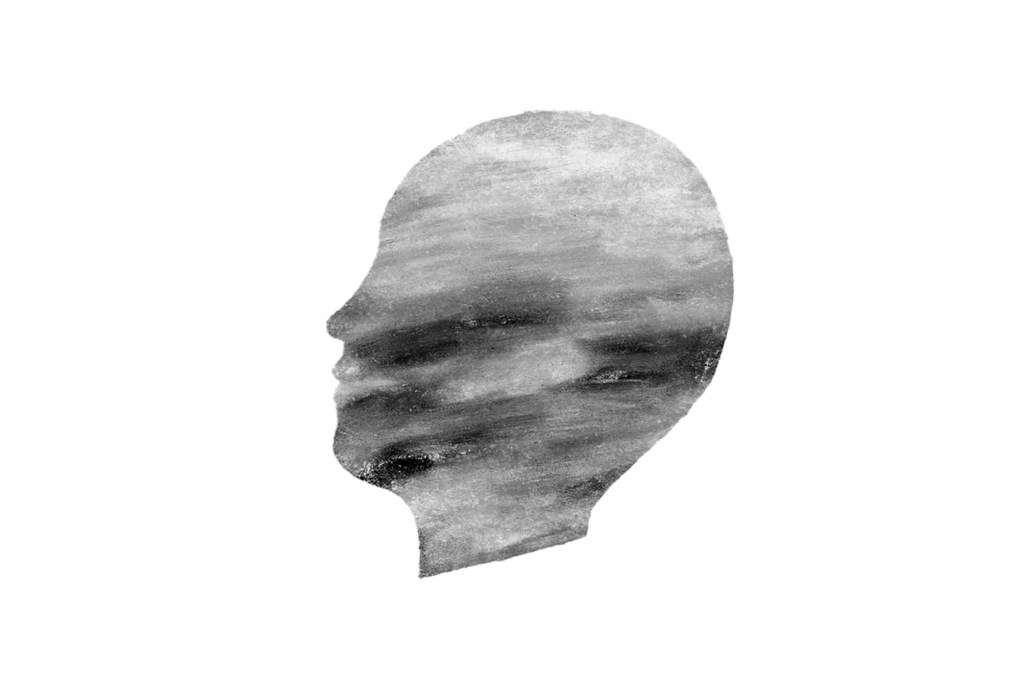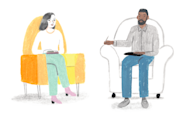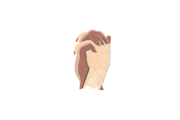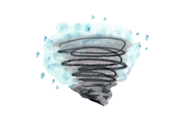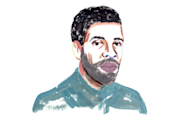Losing a loved one is traumatic, regardless of the circumstances of their death. Whether expected or sudden; after a long, fulfilling life, or with so much more life ahead, death brings grief to all those left behind. But death by suicide brings with it a particular grief, an unresolved grief that hangs over those left behind long after what one might expect from any other loss.
What’s worse is that suicide seems to be uniquely contagious to those who come into close contact with it. Statistically, every time someone you know dies by suicide, your own risk for suicide increases, especially if you’ve lost a family member to suicide.
Even merely knowing about the suicide of a person within the same geographic area or period in time can affect suicide risk, especially among teens and young adults; recent studies have shown this to expand beyond typical factors such as age and family history when media attention is involved.
It’s a tragic data point, but one that bears discussion. It brings home why suicide—and more importantly, suicide awareness and suicide prevention—matters to absolutely everyone: no one is immune.
I was 18 the first time I lost someone I loved to suicide. He was the brother of my best friend, only a few years our senior, and he had seemed to me, and to everyone around us, to have a lust for life and love for people unlike anyone else. He was charismatic and kind. Friends had seen him just a few weeks before he died; he was cheerful and smiling.
His death left a massive gaping wound in our lives, and so many unanswered questions. I don’t think any of us who knew him have ever quite understood why he ended his own life.
A few years later, another young man, the same age as the first, whom I had known since childhood, took his own life. While the circumstances of his death seemed completely different, that he had seemed happy just days before was not. This young man had openly struggled with depression for years, but he had seemed to get better, more hopeful. Again, the gaping hole in our lives again, the unanswered questions.
Friends had seen him just a few weeks before he died; he was cheerful and smiling.
In parallel, celebrities were dying by suicide in what felt like a monthly cycle. Kurt Cobain’s death loomed largest, but the list of young men with so much to offer, inexplicably gone, only continued to grow every time the subject came up among friends.
And, even though we don’t know them, celebrity suicides can hit us hard; one South Korean study found an increase of suicide in the general population months after a celebrity’s suicide. I struggled with my own depression, which was frustrating, but having a hand in my own death seemed out of the realm of possibility. Years later, that changed.
I grew up. I left home. I sought therapy for depression, and with Cognitive-Behavioral Therapy (CBT), I not only started identifying some of my own destructive behaviors and negative thinking but actually managed to change my outlook. I studied. I found a job I loved.
And I fell in love. I had found a partner who, on good days, made me feel as if depression couldn’t possibly ever reach me, and, on bad days, one-upped my sorrow with a fathom of despair I had never witnessed in another person.
In public, he was a magnet. Nearly everyone he crossed paths with basked in the warmth of his wit and his kindness. In private, his grief, and rage, and utter, inexplicable sadness was impregnable and impossible to understand.
It was accompanied by what would later be identified as alcoholism. Not only are depression and substance abuse correlative in some people and causative in others, but both depression and alcoholism are believed to be progressive diseases when left untreated, meaning they worsen over time.
Several factors can influence the progression of alcoholism (and the comorbidity of depression). But one’s effort to recover is not one of them.
My partner put in the work. He sought treatment and committed himself to his recovery. He’d identified his alcoholism before it even had dawned on me. Not that I hadn’t noticed and cataloged his increasingly terrifying physical deterioration and emotional unraveling. I’d been researching his symptoms; I’d convinced myself it was stomach cancer.
After emerging, I realized that to save my own life; I had to worry about my own life at least as much as I worried about his.
But our marriage did not make it. Though even to this day I commend the effort he put into healing, the painful cycle of rehabs, outpatient programs, AA meetings, and eventual relapses just seemed to worsen each go-round.
All of my energy went into supporting him, researching treatment, trying to create an environment that would minimize the risk of relapse. I exhausted myself, used myself up. Eventually, I was told I had suffered a nervous breakdown. After emerging, I realized that to save my own life; I had to worry about my own life at least as much as I worried about his.
This is the most important lesson about self-care, and it doesn’t come from a religious text or self-help book. It comes from flight attendants at the beginning of every flight: Put on your own oxygen mask before assisting others.
This message—you can’t help others if you haven’t helped yourself—is repeated over and over in support groups like Al-Anon, and even echoed by the National Alliance on Mental Illness (NAMI). Caretakers cannot adequately care for others if they are not putting their own care, well-being, and survival ahead of even those they love the very most.
I had given all my oxygen to my partner, and I was suffocating.
We divorced. I began anew. A new job, a new city, a new relationship, all on the other side of the country. He, too, started a relationship with someone new, started a new job, and seemed to build a new life as well. He seemed to be recovering.
Years passed, more cycles of celebrity suicides. Even after our divorce, every time I’d hear of another death from depression and substance abuse, I’d worry about my ex-husband for days. We had met so young, had shared over 15 years of our lives together, and I knew him for the bright, kind, and special person he could be.
I wished for his lasting recovery so he may one day see it himself.
But the call came. It was early evening; the late summer light had a golden hue as it glanced across the trees in Madison Square Park.
An old friend was calling—she’d stayed in contact with us both despite the years of pain and my move to the other side of the country. I answered, a bit surprised to hear from her. She had just seen a disturbing post on my ex’s social media account: “I think it’s a suicide note,” she said on the phone.
When the police found his body four weeks later, it seemed he’d likely died just hours after posting his note.
Though I knew it was coming—and now could see that I had known for years, powerless to prevent it—I was coldcocked by my grief. I was gutted that this man I’d loved and adored, and who’d been loved and adored by so many others, could have been in enough pain to take his own life.
“I think it’s a suicide note,” she said on the phone.
His memorial was a small gathering on what would have been his 38th birthday. I did not attend. It was across the country, and I worried that my presence might confuse people. Part of me was afraid I’d be blamed for his death somehow, even though I’d stayed in touch with his family.
I was also pregnant. I didn’t want expose my unborn child to so much sadness.

There are no words to describe grief at its worst. I cannot tell you where it ends, only for me, where it began. And how, for me, it just continued to cascade, like a tiny boat approaching the falls, or a tired swimmer in the undertow. There was nothing one could do to keep from being pulled over the precipice, under the wave.
For the first time, I understood not wanting to exist anymore.
A few weeks after the memorial I did not attend, I miscarried.
I had already been drowning, and now there was nothing to swim to the surface for. The flight attendant’s advice no longer applied: There was no oxygen left for me, there was no child at my side. For the first time, I understood not wanting to exist anymore.
But I knew the pain of surviving someone’s suicide. I knew what it was like to face the gaping hole and the unanswered questions.
Even as I felt myself in the darkest waters since my nervous breakdown, I knew I had no choice but to live. I couldn’t subject my family to the agony and guilt of staying behind. This is where my depression and that of my ex-spouse was not the same. This is where mental illness presents so differently in different people.
My sister, a wilderness EMT and professional river guide who has safely led thousands of people through roiling waters, says it this way: Be an active participant in your own self-rescue. If you fall out of the boat, don’t just wait to be plucked from the water—attempt to swim to shore.
I knew I needed help. I had seen several therapists over the years; starting in college to help cope with PTSD, and later for marriage counseling, family addiction recovery support counseling, and perhaps most importantly, the life-saving CBT and ACT therapy I received after my nervous breakdown years before. But I was living in a new place now and didn’t know where to turn. I asked a friend for her therapist’s number. When I called, I was still lying in bed after days of crying.
When I finally sat across from the new therapist for the first time, I was overwhelmed by the relief I felt, right alongside the sadness, anger, and guilt that had consumed me since my ex-husband’s death. I was able to share without feeling selfish about my feelings—which, because of my own shame, I hadn’t been able to do with even my incredibly supportive partner or my closest friends.

Grief counseling helped me to put my ex-husband’s suffering in perspective, and to process my own sadness, anger, guilt, and hopelessness. It helped me to get out of bed in the morning, to focus on the essential day-to-day activities of life and work, and to sleep better at night.
Knowing someone who has died by suicide does not have to make you a vector of despair.
That was six years ago. I still feel so sad for my ex, and all that he left behind, all that he abdicated in favor of the abyss. I know for those who suffer as he did, suicide doesn’t always feel like a choice. But for those of us who are left behind, who are called survivors of suicide loss, we must make a choice not to be another victim of a highly contagious, and highly fatal disease.
If grief consumes you, please know that it is possible to come back from the abyss and in doing so, to transform not only yourself, but those around you.
Knowing someone who has died by suicide does not have to make you a vector of despair. It can make you a catalyst for awareness and healing. As survivors, we are called to put our experience towards multiplying everyone’s chances at a fulfilling life—including our own.
I am telling you: We are all on this plane together. Put on your oxygen mask. Those around you will see, and they will do the same.
There are lots of resources for anyone suffering from depression, substance abuse, or suicidal thoughts. There are also resources for all those who care for people who suffer from the above. A few are listed below.
The National Suicide Prevention Hotline is toll-free, 24/7 support. The phone number is 1-800-273-8255.
The National Alliance on Mental Illness provides information and support for those who suffer from mental illness, and their families and caretakers.
AA and Al-Anon provide daily support groups for those who suffer from alcoholism and substance abuse, and for their families, respectively.
The Suicide Awareness Voices of Education (SAVE) foundation provides resources for those who have survived a loss by suicide.
Finally, reaching out to a therapist about your concerns can be an incredibly transformative first-step towards getting help—I cannot recommend it enough. It saved my own life a few times, and very well could save yours.
Brand, R. (2011, July 24). Russell Brand on Amy Winehouse: “We have lost a beautiful, talented woman.” The Guardian. Retrieved from https://www.theguardian.com/music/2011/jul/24/russell-brand-amy-winehouse-woman
Donovan, J. (2019, February 19). The stages of alcoholism. WebMD. Retrieved from https://www.webmd.com/mental-health/addiction/alcoholism-stages#2
Gould M. S., & Lake A. M. (2013, February 6). The contagion of suicidal behavior. Contagion of Violence Workshop Summary; 2012. Institute of Medicine & National Research Council. Retrieved from https://www.ncbi.nlm.nih.gov/books/NBK207262/
National Alliance on Mental Illness (NAMI). (2020). Taking care of yourself. Nami.org. Retrieved from https://www.nami.org/Your-Journey/Family-Members-and-Caregivers/Taking-Care-of-Yourself
Park, J., Choi, N., Kim, S. J., Kim, S., An, H., Lee, H. J., & Lee, Y. J. (2016). The impact of celebrity suicide on subsequent suicide rates in the general population of Korea from 1990 to 2010. Journal of Korean Medical Science, 31(4), 598. Retrieved from https://doi.org/10.3346/jkms.2016.31.4.598
Post, R. M. (2015). Heading off depressive illness evolution and progression to treatment resistance. Dialogues in Clinical Neuroscience, 17(2), 105–109. Retrieved from https://www.ncbi.nlm.nih.gov/pmc/articles/PMC4518695/
Qin, P. (2003). The relationship of suicide risk to family history of suicide and psychiatric disorders. Psychiatric Times, 20(13). Retrieved from https://www.psychiatrictimes.com/view/relationship-suicide-risk-family-history-suicide-and-psychiatric-disorders
Suicide Prevention Resource Center. (2020). Risk and protective factors. Retrieved from https://www.sprc.org/about-suicide/risk-protective-factors
Vaillant, G. E., & Hiller-Sturmhöfel, S. (1996). The natural history of alcoholism. Alcohol Health and Research World, 20(3), 152–161. Retrieved from https://www.ncbi.nlm.nih.gov/pmc/articles/PMC6876506/
Weiland, M. F. (2015, December 8). Scott Weiland’s family: “Don’t glorify this tragedy.” Rolling Stone. Retrieved from: https://www.rollingstone.com/music/music-news/scott-weilands-family-dont-glorify-this-tragedy-44427/

